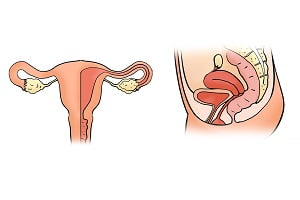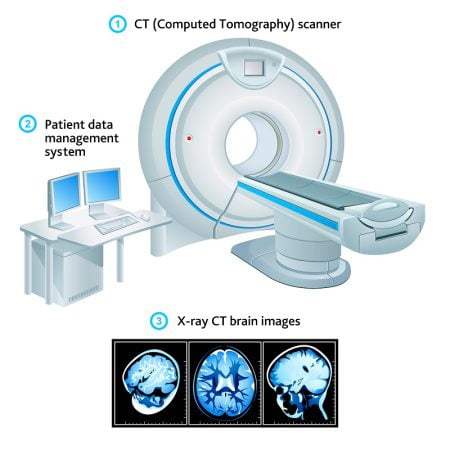Causes of Pelvic Inflammatory Disease (PID)
- Updated on: Jun 10, 2024
- 3 min Read
- Published on Apr 17, 2020

Pelvic inflammatory disease (PID) is an infection in which there is inflammation of a woman’s pelvic organs including the uterus (womb), fallopian tubes (tubes), ovaries, and cervix. PID is a very common disease among women.
What are the Causes of PID?
The main cause of pelvic inflammatory disease (PID) is a bacterial infection. When bacteria enters from the vagina or cervix and travel to the womb, fallopian tubes, or ovaries, it causes PID.
PID is caused by bacteria Neisseria gonorrhoeae and Chlamydia trachomatis. These bacteria usually cause sexually transmitted infections called chlamydia and gonorrhoea. Untreated gonorrhoea and chlamydia can lead to pelvic inflammatory disease.
Bacteria usually found in the cervix can also travel into the uterus and fallopian tubes during some medical procedure such as:
- At the time of delivering a child (childbirth).
- During endometrial biopsy (process involves removal of a small piece of your womb lining to test for cancer).
- During insertion of an intrauterine device (IUD).
- When miscarriage and abortion occurs.
Who are More Prone to Get Pelvic Inflammatory Disease?
Women who are more prone to develop PID are:
- Having a history of sexually transmitted disease
- Women who had pelvic inflammatory disease before
- PID is common in women of age between 15 to 25 years
- Women who used to do vaginal douching (vaginal cleansing with water). Douching generally push the bacteria into the reproductive organs and lead to pelvic inflammatory infection. Douching may also hide the signs of PID.
- Women who have just gone through intrauterine device (IUD) inserted. The risk of infection is higher for the first few weeks only after IUD insertion. PID rarely occurs after that time period.
- Women having irregular menstruation.
- Women who consume alcohol or drugs and then have sex.
- Women having multiple sexual partners.
- Women having sex before 25 years are more at risk to develop pelvic inflammatory disease.
- Having unprotected sex.
What are the Complications of PID?
There are some complications which can occur due to a PID:
Infertility
Women with bacterial infection in the vagina leads to the formation of scar tissue in the female reproductive organs. This is called a tubo-ovarian abscess. The scar tissue partially and completely blocks the fallopian tubes, which prevents the entry of sperm and egg from meeting and leads to infertility.
Ectopic Pregnancy
Ectopic pregnancy usually occurs within the first 12 weeks of pregnancy when the scar tissue in the fallopian tube prevents a fertilized egg to pass through tube to the uterus (preventing the implantation in the uterus). The pregnancy can lead to a rupture of the fallopian tubes causing internal bleeding and even death.
Chronic Pain
Pelvic inflammatory disease in women leads to chronic pain in the lower abdomen region or pelvic region.
Pelvic inflammatory infection can spread to other parts of the body, if it spreads through the blood and can also become life-threatening in many cases. About 1 in 8 women, with a history of PID has difficulty in pregnancy.
FAQs
Can PID Kill you?
PID cannot kill you in normal cases. But in some cases, it can be life-threatening. For example, if it occurs during pregnancy, it can lead to ectopic pregnancy which may lead to death if a fallopian tube burst and internal bleeding continues. If PID is left untreated, it can damage the fallopian tubes, ovaries, and uterus, which lead to chronic abdomen or pelvic pain and serious damage to the reproductive system. PID can be one of the common causes of infertility.
How Can You Test for PID at Home?
You cannot test for PID at home. You need to go to doctor for better testing. Doctors usually find out if you have PID by performing pelvic examinations. You may be tested for chlamydia, gonorrhea, and other infections, because they can cause PID. A doctor may take samples of urine, blood, and/or fluids from your vagina and cervix for further lab testing.
Can PID Spread to Other Organs?
Yes, PID infection can spread to other parts of your body. Bacteria after causing the infection in fallopian tubes can enter into the abdomen to cause further infection. This kind of infection is called peritonitis.
How Long Does it Take for PID to Clear up?
PID symptoms normally will clear up after taking antibiotics for 10 to 14 days. Severe cases of pelvic inflammation may need hospital treatment. Your gynaecologist may want to see you after three days to make sure that the antibiotics that were recommended by him/her are working properly. Antibiotics are generally preferred so that no more infection occurs.












